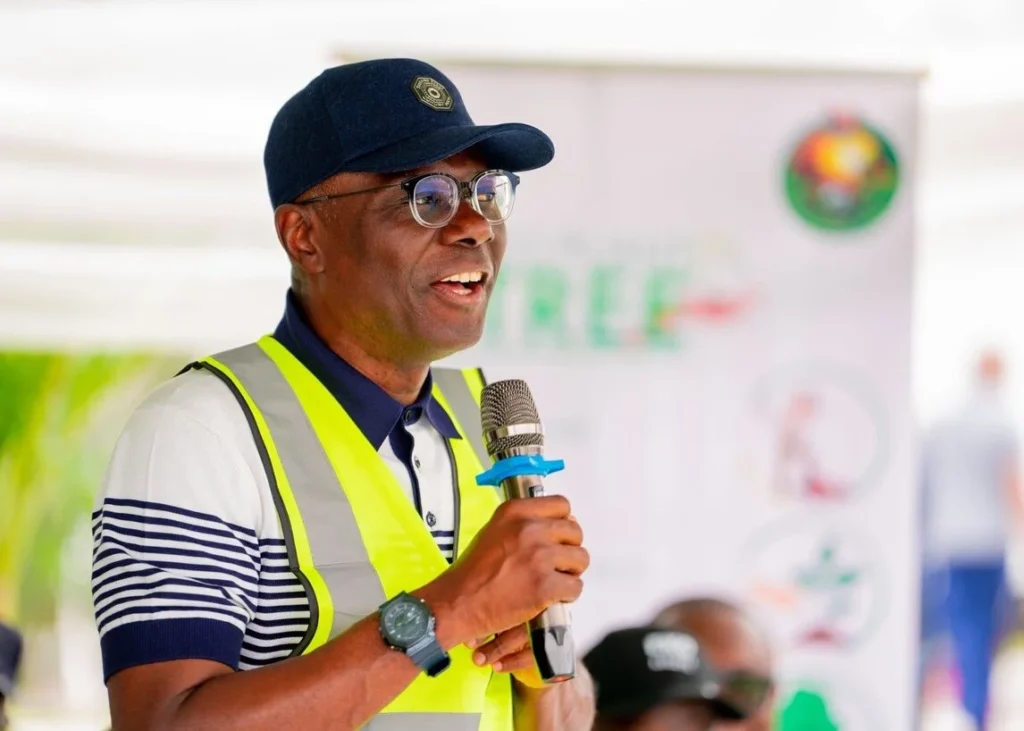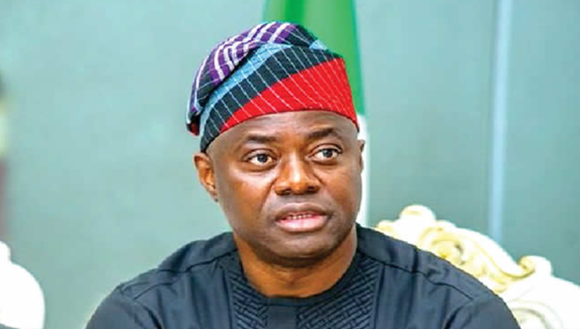Lagos Seeks Collaboration for Flood-Resilient Climate Measures
Governor Babajide Olusola Sanwo-Olu
The Lagos State Government has emphasized the need for stronger partnerships and innovative solutions to address the increasing threats of flooding and climate change in the state. Governor Babajide Olusola Sanwo-Olu made the call during the World Habitat Day 2025 celebration, held at the Blue Roof, Lagos Television, Agidingbi, Ikeja.
Represented by the Secretary to the State Government, Mrs. Bimbola Salu-Hundeyin, the Governor said the theme of this year’s event — “Urban Crisis Response: Flooding in Focus” — perfectly reflected Lagos’ position as a coastal megacity that is highly vulnerable to climate impacts.
Flooding: A Growing Urban Challenge
Governor Sanwo-Olu explained that flooding has remained one of Lagos’ most pressing urban challenges, affecting homes, businesses, transportation, and livelihoods. He stressed that addressing it requires proactive planning, sustainable investment, and active community engagement.
According to him, the state government has made urban resilience a core part of its development framework under the T.H.E.M.E.S.+ Agenda, which focuses on Traffic Management, Health, Education, and Environment, among others.
The Lagos State Resilience Office (LASRO), he noted, has been working to coordinate projects and policies that reduce flood risks, enhance disaster preparedness, and strengthen communities.
“Investing in flood-resilient housing, smart drainage systems, renewable energy, and urban-risk insurance will safeguard communities while creating new avenues for growth,” the Governor stated.
Encouraging Private and Global Partnerships
Governor Sanwo-Olu urged private investors, development partners, and innovators to work with the government in driving climate adaptation and mitigation efforts, particularly through mangrove restoration projects and environmentally friendly urban designs.
He highlighted the Dangote Group’s partnership on coastal mangrove restoration as an example of how public-private collaboration can protect the environment while boosting local economies.
The Governor reaffirmed his administration’s commitment to making Lagos not only liveable today but sustainable for future generations through inclusive planning and modern infrastructure.
Rethinking Urban Planning and Development
In his welcome remarks, Dr. Oluyinka Olumide, Commissioner for Physical Planning and Urban Development, described World Habitat Day as an important moment for reflection — a time for governments and citizens to evaluate the state of human settlements and reaffirm their commitment to sustainable urban planning.
Dr. Olumide emphasized that flooding in Lagos is a lived reality, not a distant theory. He explained that tackling it requires stronger enforcement of development regulations, climate-responsive building designs, and inclusive governance that involves all communities.
“Physical planning goes beyond permits and approvals; it embraces community resilience, sustainable construction, and inclusive development,” Dr. Olumide noted.
He also commended Governor Sanwo-Olu for his continuous efforts in flood control, infrastructure renewal, and housing delivery, which are improving the quality of life for Lagos residents.
Building a Sustainable and Flood-Resilient Future
The Permanent Secretary, Office of Physical Planning, Mr. Oluwole Sotire, expressed appreciation to all stakeholders, youth participants, and partners for contributing to the success of the event. He reaffirmed the state government’s determination to deepen collaboration with both local and international partners to build a more sustainable, inclusive, and flood-resilient Lagos.
As climate change continues to pose challenges for coastal cities, Lagos is taking proactive steps to adapt through collaboration, innovation, and resilience planning. The government’s appeal for joint action highlights the urgent need for everyone — from policymakers to residents — to play a role in protecting the state’s environment and future.
By investing in sustainable infrastructure and strengthening partnerships, Lagos aims to set a model for other African cities facing similar environmental threats.











